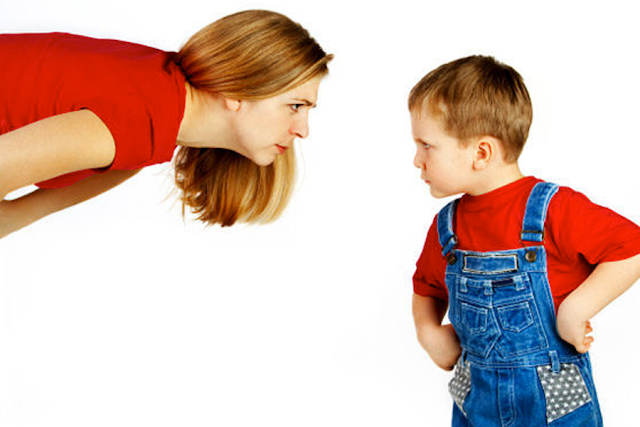Parenting requires great commitment, love,
patience, and a backbone to discipline. It is not an easy job, but it is the
most rewarding job.
Most parents do some things right and do some
things wrong. Parents usually learn a lot with their oldest child and feel much
better with the youngest child, no doubt about the fact that each child is
different and must be dealt with on an individual basis.
Most parents want their children to grow up
to become descent and productive members of the society.
It’s the duty of parents to guide their
children and discipline them along the way, so children’s experience growing up
is filled with learning for success and the knowledge that their parents are
going to be there to love, support, and advise them. Good parents understand the
different ways to discipline a child appropriately. They understand that
behavior with children comes in stages, and are able to deal with each stage
effectively.
Bad parents give into their children and
don’t step up when their children need them the most.
Do not
Negotiate with Your Young Child
All
babies and toddlers are born wild. Babies are born to do what they are guided
or not guided to do. If you do not take your role as a responsible parent, you
are going to have major problems. You must be strong, and you must give them
guidance. It is a difficult task.
When
a child is doing something wrong, it’s the duty of the parent to let them know it
is wrong on the child's level of understanding. Most parents negotiate with
their child, for instance a parent telling the child "If you stop doing this,
I will give you that." WHAT? Is that supposed to be a reward to get your
child to stop misbehaving? When was the last time you saw an adult receiving a
reward for stopping an action that is considered to be wrong? I haven't heard
any judge say, "If you stop smuggling drugs, I will give you some
money."
Parents
should not imbibe such in their children by negotiating with them when they are
little. Children need to know the difference between right and wrong when they
are little, and when they get older, they will learn about the other areas.
When they learn the other areas, they will either argue because they expect you
to negotiate or want to suppress your decision or they will possibly argue then
listen to your advice on how to handle those situations that are unclear.
You
must show your child that you are the parent, and he or she must understand and
listen to you. And the best way to establish your authority is through love and
discipline which is what they need.
Tutoring your Toddler
Toddlers will definitely test their new words and limits entirely with you. Sometimes it might sound funny even when the things are wrong. For instance, your toddler has picked up a curse word: "I don't want that 'shit’," she yells. OMG! the little handsome boy just said "shit." It was kind of funny to hear that word come out of her mouth and at the same time annoying. What are you suppose to do? Laugh? Tell her to say it again? Tell her to shut up? Spank her? Smack her on the cheek?
Even sometimes when we think something our
kids do look funny, yet we know it is inappropriate, we should not laugh. In the
case of the vulgar language, the parent should ask on a toddler’s level, “Where
did you hear that word?” She might heard it from an older sibling or an adult,
etc. Then you should walk up to your child and let them know things like, “That
is not a nice word, and ‘your big sister’ was wrong when she said it in front
of you. If you hear her say it, you need to tell her it is a bad word.” Most toddlers
usually understands this type of talk. They understand you are asking for their
help in ridding the world of bad words when you ask them to tell another person
that “shit” is not a nice word. You also need to express to the toddler that
she cannot say the word again, or you will have to wash her mouth out with
soap. I am not talking the Lava scene from “A Christmas Story”; just a dab of
soap on your finger to her mouth. It taste terrible, the toddler will know
there is a consequence, and hopefully you will not have to worry about being in
church and the toddler yelling, “Would you give me the ‘shit’ thing?”
There are always going to be times when you
feel like crawling in a hole when your toddler does something shocking or that
reflects poorly on your home life (you will laugh about it later), but letting
them know there is a consequence at their level will help prevent this type of
behavior.
READ Good Parents VS Bad Parents.... (....attitude) part 2

Comments
Post a Comment